McDonald's Organic Burger Debuts In Germany, But Will It Be Successful?
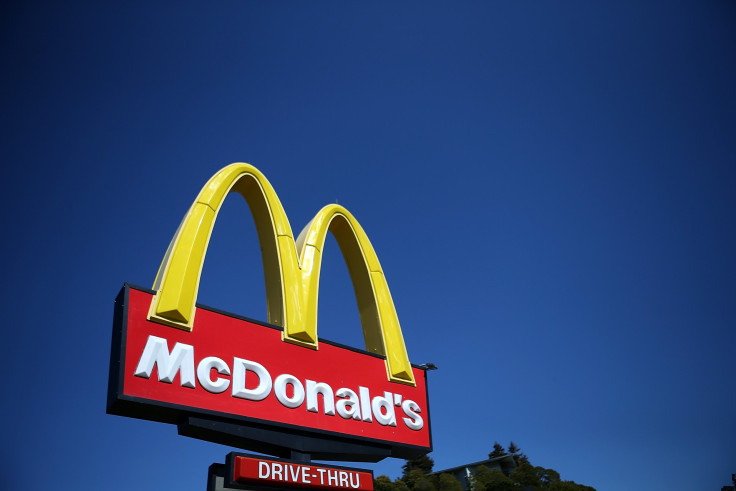
The iconic McDonald's "golden arches" have been an international emblem of American junk food for decades. With its greasy burgers and salty French fries, the burger chain has become the prime example of what fast-food restaurants once aimed to be: quick, cheap and predictable, but not necessarily healthy.
Consumers' changing tastes and demand for healthier foods, however, have brought tough times for McDonald's, with slumping sales both domestically and internationally. The iconic burger chain has tried a slew of new initiatives sin the U.S.—from an all-day breakfast menu to a kale salad—to turn around its plunging profits. Now, the corporation has turned its attention overseas. In its latest effort to appeal to the health-conscious European market, it launched its first 100 percent organic beef hamburger for a limited time in Germany this month. But marketing experts and dieticians alike predict an organic burger in a fast-food joint won't be enough to make over McDonald's global reputation as a purveyor of greasy American food.
McDonald's decision to roll out its first organic burger in the German market, instead of its largest market in the U.S., isn't too surprising. With a large global presence, the fast-food giant has consistently offered different menu items in its global stores to cater to the local demand. In India, McDonald's offers a variety of vegetarian items that cannot be found in the U.S., including the McVeggie and Veg Pizza McPuff. In Malaysia, McDonald's put a twist on a local Malaysian dish with its Burbur Ayam McD, and in Korea, McDonald's customers can find a shrimp burger on the menu. Still, the burger joint has seen plunging profits globally. For the second quarter ending July 23, global comparable sales decreased 0.7 percent, reflecting negative guest traffic in all major segments. In Asia, sales were down in Japan and China after meat processing scandals.
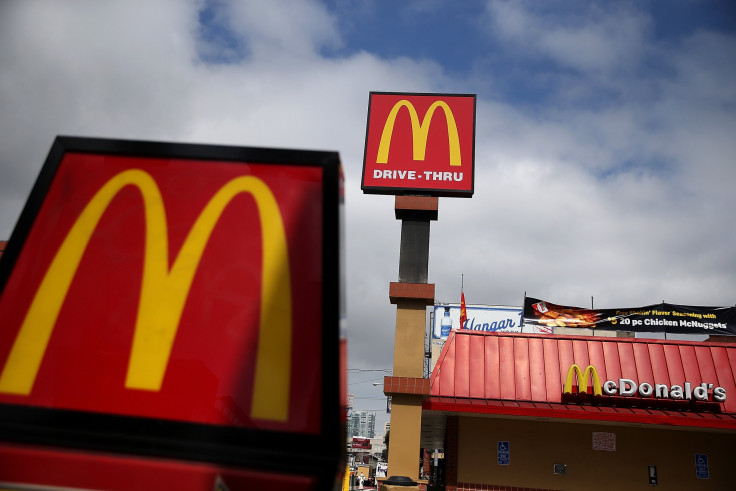
McDonald's, known for its caloric Big Macs and salt-ridden French fries, has especially struggled with how to appeal to health-conscious German consumers, making Germany one of its toughest markets. In the fourth quarter of 2014, weakness in McDonalds' France and German markets, which has almost 1,500 restaurants, contributed to a 1.1 percent decline in comparable sales in Europe, according to Reuters. In fact, Britain, France, Russia and Germany together accounted for only 67 percent of European revenue in 2013. However, Germany's quarterly sales recently grew for the first time since 2012, making it one of Europe's top markets.
Colleen Liace, 27, resides in Washington, D.C. but lived in Germany from January until September for a work assignment. Liace said she noticed that most Germans instantly associated McDonald's with an unhealthy American lifestyle, but that the chain still remained popular there. She predicted that the organic burger could do well in the German market, but it's lasting success would be dependent on price points.
"I feel like the meat standards in general are higher in Germany, which may lead to higher popularity," Liace said in an e-mail. "I've eaten there myself and feel like the quality in ingredients are night and day compared to the U.S."
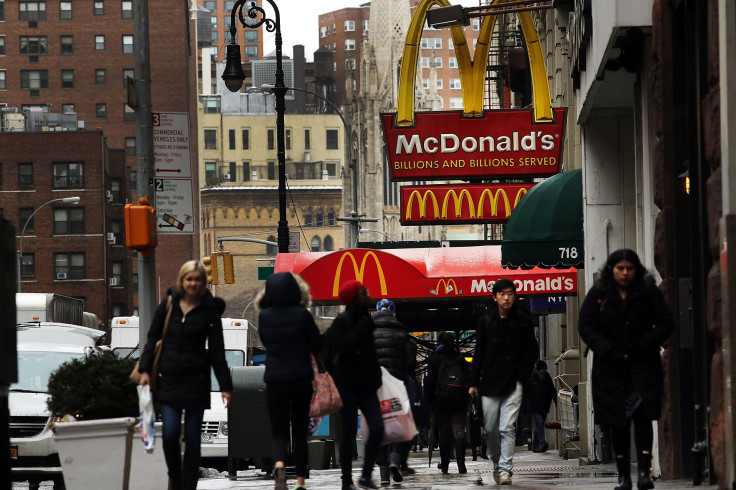
But Nico Bokesch, 19, a resident of Taufkirchen/Vils, Germany, predicted that an organic burger would flop. Germans are aware that the fast food chain is "unhealthy and fattening," according to Bokesch, but they still go to McDonald's because "it just tastes good."
"The Big Mac is the most popular burger and most consumers eat it," said Bokesch. "I think McDonald’s shouldn’t try to turn healthy....no one goes to McDonald’s because they want a healthy, good meal...McDonalds' strong points are tasty and quick meals."
Dieticians also noted that offering an organic burger at a fast food chain likely won't appeal to the typical McDonald's customer, who values time and price over everything else. Organic beef is at a higher price point than regular beef, and a loyal McDonald's customer probably won't fork over extra cash just to eat organically, according to Lisa Moskovitz, a registered dietician and founder of NY Nutrition Group.
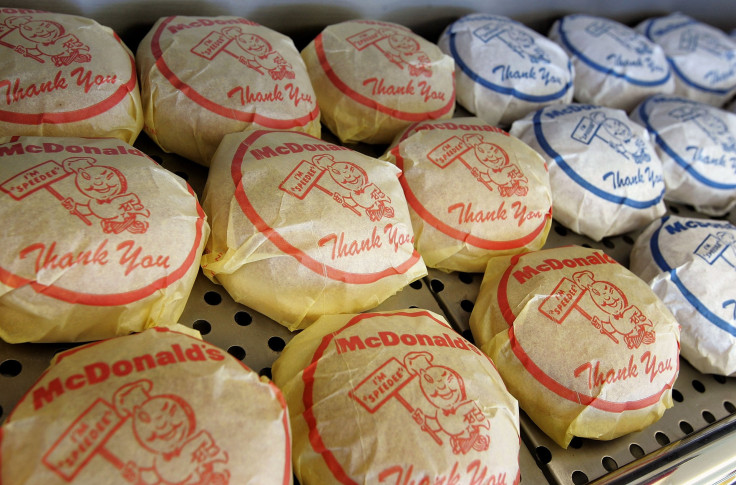
"Most people who are eating out, they aren’t really influenced by health for the most part. A lot of time they are influenced by it being fast, by money, by time, by taste. I would automatically assume that the organic meat is not going to appeal to many of the patrons (at McDonald’s), " said Moskovitz. "It's good for people who have no choice and are on the road a lot, but for the average McDonald’s patron, health is not a priority, so I don't think it will be successful."
Christine Palumbo, a registered dietician and nutritionist RDN from Naperville, Illinois, also agreed that most people skip the salads at McDonald's and typically go for the cheap and quick option, but she said that she thinks McDonald's could eventually shake its fast food image. However, it will take time, money and an open-minded consumer base, said Palumbo.
"Unfortunately there is a distrust of major corporations, and McDonald's is one of those companies where people distrust them," said Palumbo. "People will likely say, 'well, how can it be organic if it's McDonald's?' but they (McDonald's) were the ones who started offering sliced apples years ago...anything could happen."
While McDonald's did not comment on whether the company has any plans to introduce an organic burger in other markets, the potential launch of an organic burger in the U.S. isn't too far-fetched. The company's new CEO Steve Easterbrook has recently introduced a myriad of changes in an effort to revamp the corporation into a "modern, progressive burger company." McDonald's tested this year a kale salad in its California stores, and in the past, Easterbrook said that McDonald's USA planned to switch to chicken raised with fewer antibiotics.
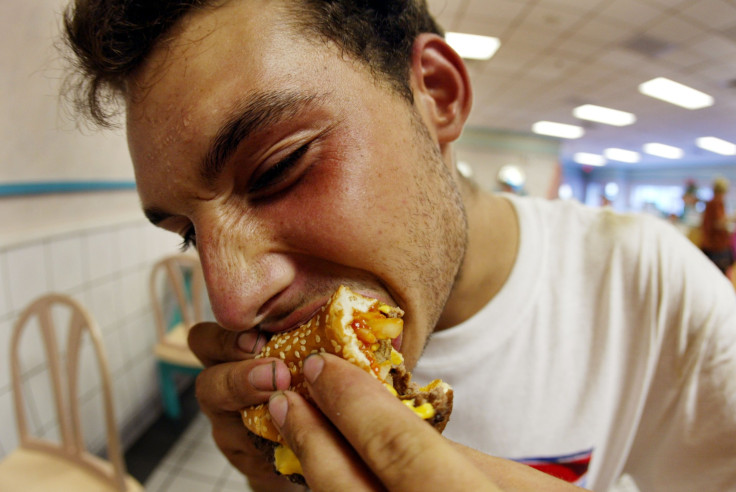
All of these changes are putting McDonald's more in line with popular chains like Chipotle and Panera Bread, which both have healthier images, but its core product of traditional hamburgers is reportedly suffering, according to Larry Light, CEO of the consulting firm Arcature and McDonald's global chief marketing officer from 2002 to 2005. If McDonald's does launch an organic burger in the U.S. as a long-term item, it could be a recipe for disaster.
"I think the core products are being ignored," said Light. "The quality of the core product has deteriorated, while competition’s quality has improved. Burger King and Wendy's are saying 'thank you very much', and are growing at the expense of McDonald’s."
Light said McDonald's should focus on revitalization, not growth. "You don’t build a tall building on a weak foundation," he said.
© Copyright IBTimes 2024. All rights reserved.






















